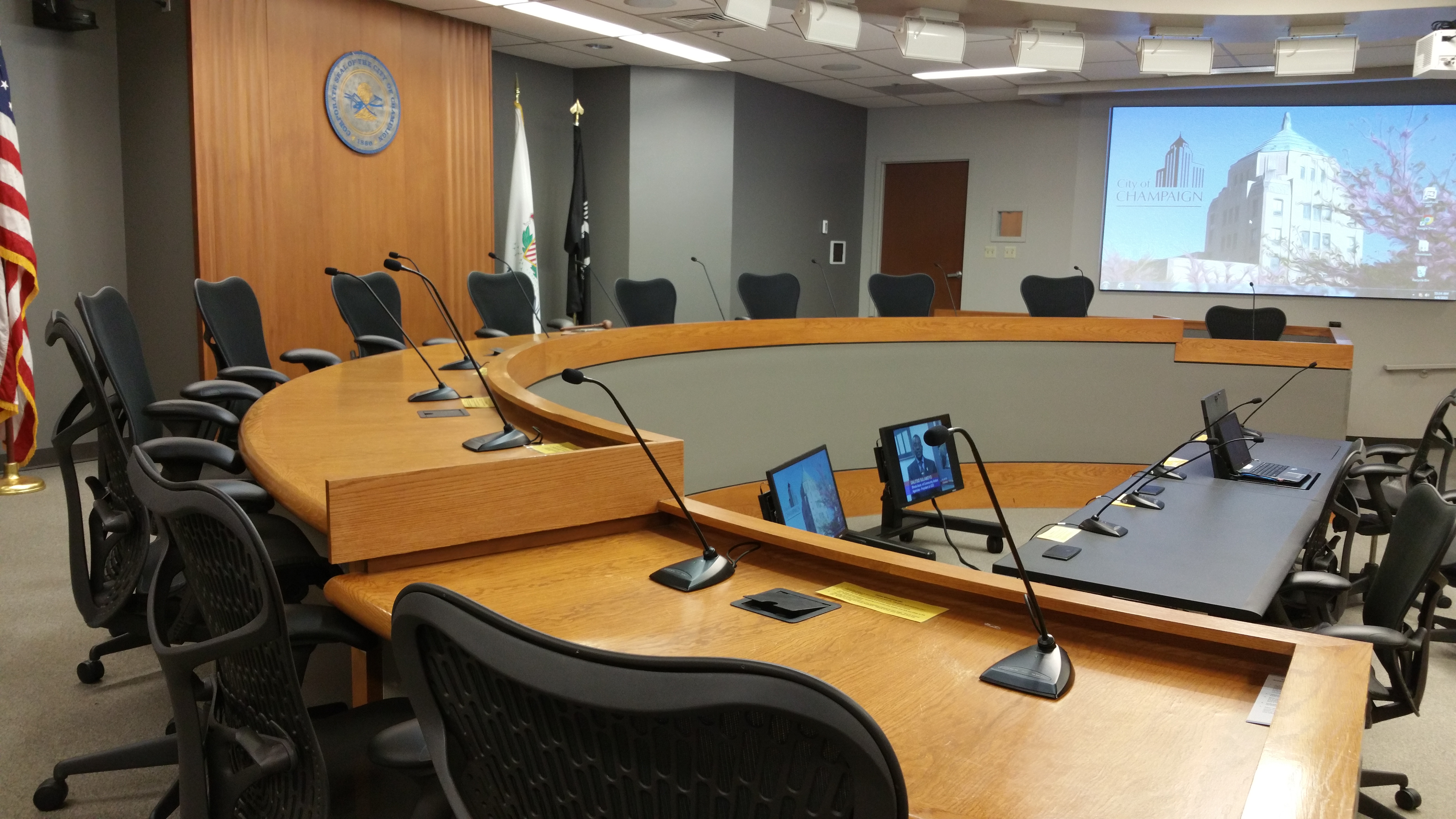About the Champaign City Council
The Champaign City Council is comprised of nine, non-partisan elected representatives. The Mayor and three At-Large Council members are elected by voters from across Champaign. Five District Council members are elected by voters who live within a defined geographic area of the City. All serve four-year, staggered terms. Elections are held every two years, with the Mayor and At-Large Council Members elected during one election cycle, and the District Council members elected in the next. The City Council also serves as the City of Champaign Township Board of Trustees.
Types of Council Meetings
Regular Meetings
Regular meetings of the City Council are held on the first and third Tuesdays of each month at 7:00 pm in the Council Chambers of the City Building, 102 N Neil Street, Champaign. Regular meetings are used to conduct the legislative work of the City, including voting on Ordinances, Resolutions, holding public hearings, and approving expenditures. Major items of legislation are often discussed in Study Session meetings prior to being voted on during a Regular Meeting.
Study Session Meetings
Study Session meetings of the City Council are held on the second and fourth Tuesdays of each month at 7:00 pm in the Council Chambers of the City Building, 102 N Neil Street, Champaign. Study Session meetings are used to engage in an in-depth analysis and discussion of a particular topic. Informal polls are commonly taken by the Council to provide general staff direction on the subject being discussed, but no formal action is taken during Study Session meetings. Study Session topics needing formal approval will be place on a subsequent Regular Meeting agenda for a Council vote.
Executive Sessions
Executive Sessions are closed meetings that allow the City Council to discuss certain matters of a sensitive nature which affect the City. Areas that may be discussed in Executive Session are specified in the State’s Open Meetings Act. Examples include appointment/employment or dismissal of an employee or officer, land acquisition, collective bargaining/labor negotiations, and probable or pending litigation involving the City. When a motion is made to adjourn to an Executive Session, only that specific topic can be discussed and no final action may be taken on it during the closed Executive Session. After the Council has determined that it is no longer necessary to protect the public’s interest or the privacy of an individual, minutes of the Executive Session are made available to the public.
